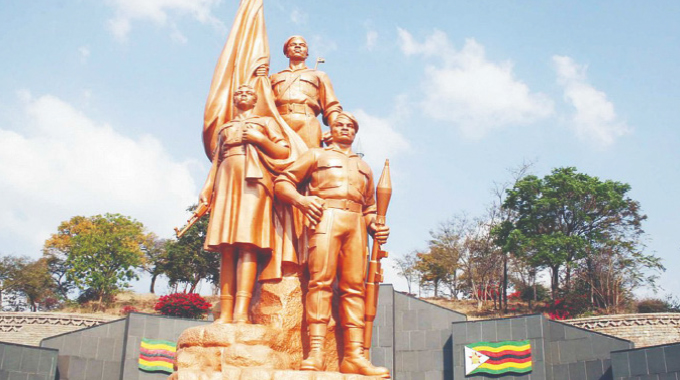Empowering Struggling African Nations: A call for an African BRICS

Marshall Ndlela, [email protected]
THE BRICS (Brazil, Russia, India, China, and South Africa) alliance has emerged as a formidable force on the global stage, representing a collective effort to address shared challenges and foster economic co-operation. However, as economically struggling African nations continue to face immense hardships, it is crucial to explore the potential benefits of establishing an African version of BRICS.
By harnessing the collective strength of African nations, such an alliance can provide a platform for collaboration, economic growth, and sustainable development, ultimately paving the way for a brighter future for Africa.
Promoting Regional Integration
An African BRICS alliance could serve as a catalyst for regional integration. By fostering closer ties among African nations, the alliance would encourage intra-African trade and investment, thereby reducing dependence on external markets. This increased regional integration would lead to the pooling of resources, sharing of knowledge and technology, and the creation of a more vibrant and resilient African economy.

The recently commissioned Kazungula Bridge is a major step towards SADC regional integration
Enhancing Economic Growth
Economically struggling African countries would greatly benefit from an African BRICS alliance by gaining access to a wider range of economic opportunities. The alliance could promote investment in critical sectors such as infrastructure, agriculture, and manufacturing, thereby stimulating economic growth and job creation. Additionally, the alliance could facilitate knowledge transfer, technology sharing, and capacity-building initiatives, equipping struggling African nations with the necessary tools to address their economic challenges effectively.
Strengthening Collective Bargaining Power
Individually, African nations may struggle to negotiate favourable terms in international trade agreements or attract significant foreign direct investment. However, by forming an African BRICS alliance, these nations would strengthen their collective bargaining power. With a unified voice and a larger market, African countries can negotiate more advantageous trade deals and attract greater investment, thereby enhancing their economic prospects and reducing their vulnerability to external shocks.
Addressing Development Challenges
Struggling African nations face a myriad of development challenges, including poverty, inadequate infrastructure, and limited access to education and healthcare. An African BRICS alliance could pool financial resources and expertise to tackle these challenges head-on. By co-ordinating efforts and sharing best practices, the alliance could prioritise sustainable development initiatives, promote social welfare, and improve the overall quality of life for African citizens.
Fostering South-South Co-operation
The BRICS alliance has proven that South-South co-operation can yield significant benefits for participating nations. Similarly, an African BRICS alliance would encourage greater co-operation between African countries, fostering mutual understanding and collaboration. By building bridges between African nations, the alliance would enhance cultural exchanges, promote diplomacy, and strengthen the overall unity of the continent.
Infrastructure Development
One of the critical areas where an African BRICS alliance could make a significant impact is infrastructure development. Struggling African countries often face challenges in building and maintaining essential infrastructure such as roads, bridges, ports, and power grids. By pooling resources and expertise together, an African BRICS alliance could undertake large-scale infrastructure projects, improving connectivity within the continent and facilitating trade and investment.
Technological Advancement
Technological advancements play a crucial role in driving economic growth and development. An African BRICS alliance could prioritise technology transfer, research and development collaborations, and innovation initiatives. By leveraging the technological expertise of member nations, struggling African countries could enhance their capacity to adopt and adapt cutting-edge technologies, improving productivity, efficiency, and competitiveness across various sectors.
Agricultural Transformation
Agriculture is a vital sector for many struggling African nations, as it provides livelihoods for a significant portion of the population. An African BRICS alliance could focus on agricultural transformation by promoting sustainable farming practices, investing in agricultural research and development, and facilitating access to markets for African agricultural products. Such initiatives would boost food security, increase agricultural productivity, and reduce reliance on food imports, creating a more resilient and self-sufficient agricultural sector.
Human Capital Development
Investing in human capital is crucial for the long-term development of struggling African countries. An African BRICS alliance could prioritise education and skills development initiatives, including scholarships, vocational training programmes, and knowledge-sharing platforms. By equipping the workforce with the necessary skills, knowledge, and training, African nations can improve productivity, drive innovation, and create a more competitive labour market.
Sustainable Energy Transition
Addressing energy challenges is vital for the economic and environmental sustainability of struggling African countries. An African BRICS alliance could facilitate co-operation in renewable energy development, including investments in solar, wind, and hydroelectric power. By promoting sustainable energy sources, African nations can reduce reliance on fossil fuels, mitigate climate change, and enhance energy security.
Financial Co-operation
An African BRICS alliance could explore avenues for financial co-operation, such as establishing a regional development bank or strengthening existing regional financial institutions. This would provide struggling African countries with access to affordable financing for critical infrastructure projects, social development programmes, and economic diversification efforts.
In a nutshell, an African BRICS alliance holds immense potential for economically struggling African countries like Zimbabwe. By promoting regional integration, enhancing economic growth, addressing development challenges, and fostering South-South co-operation, such an alliance can empower African nations to overcome their economic difficulties and create a more prosperous and sustainable future. Through collaboration and shared efforts, African countries can harness their collective strength and create an African-led development paradigm that caters to their unique needs and aspirations.
Marshall Ndlela is a Zimbabwean based in South Africa. He is a holder of a Master’s Degree in Finance and Accounting from the University of Chichester, England. He can be contacted on [email protected].












Comments